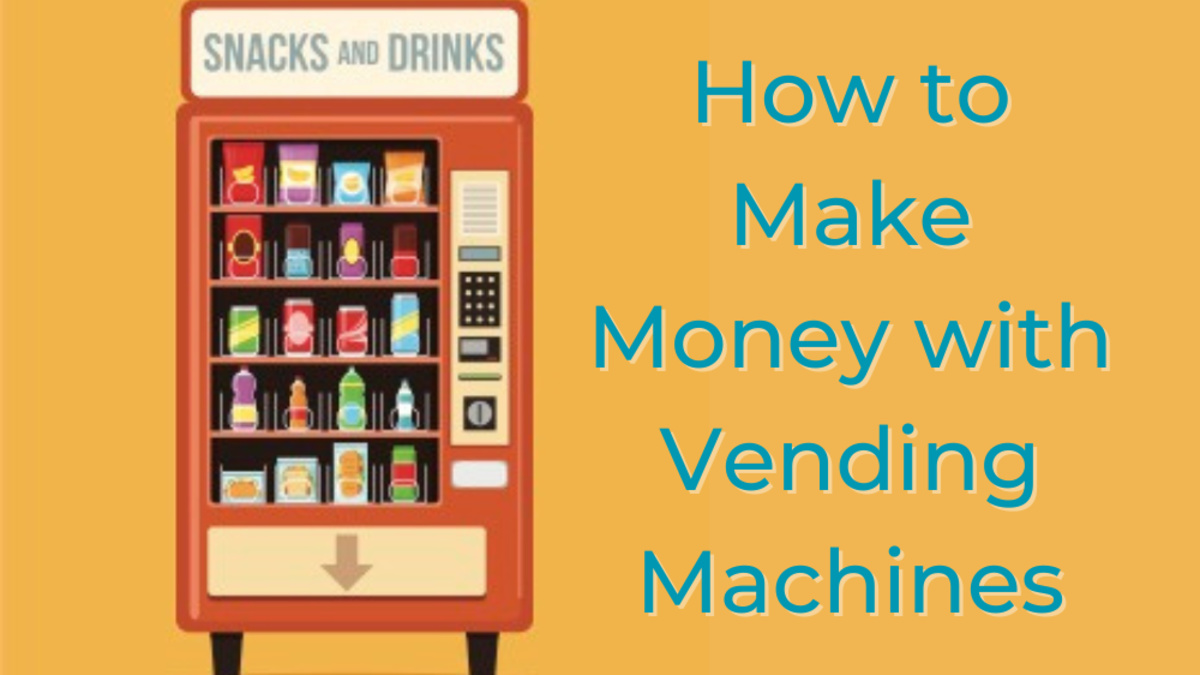How to Make Money With Vending Machines

Joy Wallet is advertiser-supported: we may earn compensation from the products and offers mentioned in this article. However, any expressed opinions are our own and aren't influenced by compensation. To read our full disclosure, click here.
Vending machines as a side gig
- Transparent information on each offer for earnings and tasks.
- Money is deposited quickly and securely
- Featured offers maximize earnings
- First-class referral program
How much many can you make with vending machines?
How to start a vending machine side gig
- Research the market: Start by researching the vending machine market in your area. Look for high-traffic areas like malls, airports, hospitals, and schools, where you can place your machines. Find out what types of products are in high demand and what prices they are selling for.
- Choose the right products: Decide the products you want to sell in your vending machines. Choose items that are popular and have a high-profit margin. Snacks and drinks are popular options, but you can also consider other items like electronics, toys, or hygiene products.
- Purchase or lease machines: Purchase or lease vending machines that fit your budget and meet your needs. Consider factors like size, capacity, and technology. Make sure the machines are in good condition and are user-friendly.
- Find a location: Once you have your vending machines, find high-traffic locations to place them. You can approach businesses, schools, and public places to negotiate deals to place your machines.
- Stock and maintain your machines: Regularly stock your vending machines with fresh products and keep them clean. Fix any issues immediately to avoid losing customers.
- Monitor your profits: Keep track of your profits, expenses, and inventory. Use this data to decide what products to stock and where to place your machines.
- Expand your business: As your business grows, consider expanding to more locations and adding more machines. You can also consider offering custom vending solutions for specific businesses or industries.
- Sign up for FREE & complete your profile
- Earn points for taking surveys
- Redeem your points for cash or gift cards
- $55k+ Paid to Survey Junkie members daily
- Complete 3+ surveys a day, earn up to $100/mo.
Where to buy vending machines
Online retailers
Manufacturers
Vending machine distributors
Auctions
Finding space for your vending machines
- Identify potential locations. Look for high-traffic areas where people would benefit from having access to your vending machines. Good locations may include malls, airports, train stations, hospitals, schools, office buildings, and community centers.
- Contact property managers. Reach out to property managers or owners of the locations you are interested in and ask about their policies for vending machines. Provide them with information about the types of products you sell and the benefits of having a vending machine on their property.
- Sign up for FREE & complete your profile
- Earn points for taking surveys
- Redeem your points for cash or gift cards
- $55k+ Paid to Survey Junkie members daily
- Complete 3+ surveys a day, earn up to $100/mo.
Pros and cons
- Low startup costs. Starting a vending machine business typically requires lower startup costs than other businesses.
- Passive income. Once your vending machines are set up and stocked, you can generate passive income without much effort.
- Flexible schedule. A vending machine business allows you to set your own schedule and work as much or as little as you want.
- Scalable business. You can easily scale your vending machine business by adding more machines to different locations.
- Diverse product offerings. Vending machines can sell a variety of products, such as snacks, drinks, and hygiene products, allowing you to diversify your product offerings.
- Location is key. Finding a high-traffic location to place your vending machine is crucial to the success of your business.
- Competition. You may face competition from other vending machines or nearby stores, depending on the location.
- Maintenance. Vending machines require regular maintenance, which can be time-consuming and costly.
- Theft and vandalism. Vending machines are susceptible to theft and vandalism, resulting in lost profits and costly repairs.
- Product expiration. If you sell perishable products, you may need to check and replace items approaching their expiration date regularly.
FAQs
The bottom line
Joy Wallet is an independent publisher and comparison service, not an investment advisor, financial advisor, loan broker, insurance producer, or insurance broker. Its articles, interactive tools and other content are provided to you for free, as self-help tools and for informational purposes only. They are not intended to provide investment advice. Joy Wallet does not and cannot guarantee the accuracy or applicability of any information in regard to your individual circumstances. We encourage you to seek personalized advice from qualified professionals regarding specific investment issues. Featured estimates are based on past market performance, and past performance is not a guarantee of future performance.
Our site doesn’t feature every company or financial product available on the market. We are compensated by our partners, which may influence which products we review and write about (and where those products appear on our site), but it in no way affects our recommendations or advice. Our editorials are grounded on independent research. Our partners cannot pay us to guarantee favorable reviews of their products or services.
We value your privacy. We work with trusted partners to provide relevant advertising based on information about your use of Joy Wallet’s and third-party websites and applications. This includes, but is not limited to, sharing information about your web browsing activities with Meta (Facebook) and Google. All of the web browsing information that is shared is anonymized. To learn more, click on our Privacy Policy link.
Images appearing across JoyWallet are courtesy of shutterstock.com.









